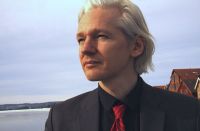While global economic multipolarity is not as simple as a sea-saw whereon the departure of one person’s economic weight is rapidly replaced by another’s - in the case of Turkey, something similar is in fact happening as China continues to boost investment throughout the Republic of Turkey, just as western financial institutions launched a pre-election hybrid war against the Turkish economy in the form of rampant speculation against the Lira. While the Lira and Turkish stocks have recovered smoothly since President Erdogan’s re-election on the 24th of June, the recent US threat of sanctions against a nominal ally means that Turkey must look further east for enhanced partnerships in order to retain the policy making independence that the country has enjoyed under Erdogan.
President Erdogan was among the earliest and most enthusiastic backers of the Chinese One Belt-One Road initiative which was originally introduced in 2013. Since then, the China-Pakistan Economic Corridor (CPEC) has flourished as a modern superhighway which seamlessly links China’s Pacific coast with the Afro-Indian Ocean region via the Arabian Sea port of Gwadar. At the same time, China and Russia are working on new corridors of trade between the neighbouring superpowers, while the prospect of a peaceful Korean peninsula opens the possibility of another north-east Asia trading route into central and western Eurasia. As Turkey is the country in western Eurasia that lies at the boundary of north-western and south-western Eurasia, Ankara has a clear role to play on the win-win model in terms of being a global junction where Chinese goods and those from other eastern One Belt-One Road participants can meet with incoming goods from the wider Mediterranean region headed towards south Asia and east Asia.
Turkey’s rapidly growing economy is likewise a substantial point of interest for Chinese investors looking for growing, young and dynamic markets in western Eurasia. A recent report from Turkey’s Daily Sabah details how over 1,000 Chinese firms are now active in Turkey across a variety of sectors. According to the report,
“Chinese firms that have been operating in Turkey’s logistics, electronics, energy, tourism, finance and real estate sectors are expanding their businesses in the country. With the entry of Bank of China and Industrial Commercial Bank of China (ICBC), the flow of Chinese companies into Turkey has accelerated and also expanded into the e-commerce sector in the recent period.
The world’s second largest trader, China invests $120 billion annually in various countries across the world and Turkey has been enjoying China’s overseas investments in the recent decade.
Accordingly, the number of Chinese firms operating in Turkey had neared 1,000 by April, according to the data of Economy Ministry.
Drawing attention to the significance of Turkey within the “Belt and Road Initiative” (BRI), an infrastructure development project designed and launched by Chinese President Xi Jinping in 2013 and spanning over 65 countries, Foreign Economic Relations Board (DEİK) Turkey-China Business Council Chairman Murat Kolbaşı stressed that the entry of two Chinese banks to the Turkish financial sector and the acquisition of a port by Chinese investors indicate the country will expand its investments and business operations in Turkey in other sectors, as well, including in energy, logistics, tourism, transportation, infrastructure and e-commerce.
Turkey’s unique position in the BRI makes the country a gate to Europe and Africa for China’s trade operations on the project’s route. Therefore, Kolbaşı highlighted that Turkey will naturally become a logistics hub for trade on the three continents.
With the aim of expanding Turkish-Chinese cooperation in the logistics sector, Turkey’s national flag carrier Turkish Airlines (THY) announced that it will form a logistics company in Hong Kong in partnership with China’s ZTO Express and Hong Kong’s PAL Air.
The partners aim to make the new joint venture one of the world’s largest integrator, and generate revenue of $2 billion within the first five years of its operation. They expect growth performance in proportion to the rising demand in the e-commerce sector.
The new joint venture and Istanbul as a mega transport hub is expected to enable THY to deliver to its customers around the world with excellent service quality“.
The report goes on to detail further Chinese investment in Turkey’s shipping and rail sectors while China and Turkey are also cooperating in the energy sector.
The following major Chinese projects in Turkey look to help elevate both Turkey’s internal economic connectivity and energy independence while readying the west Eurasian power to play a vital role as a key hub in One Belt-One Road:
-A high-speed Ankara to Istanbul railway
-A third nuclear power station to compliment those presently being constructed by Turkey’s Russian partner
-The modernisation of Turkey’s Kumport container port which is now operated by the Chinese company Cosco Pacific
-Working cooperatively to expand Turkish eCommerce platform Trendyo which just received an investment from Chinese global eCommerce leader Alibaba.
Additionally, China and Turkey plan to conduct bilateral trade in a combination of Lira and Yuan in a move that will ultimately make the growing trade between the two nations Dollar free and thus sanctions proof. In 2017, China sold $23 billion worth of goods to Turkey while China imported $3 billion worth of goods from Turkey. Officials in both countries have expressed their desire to rapidly increase these numbers.
Furthermore, while Russians continue to represent one of the biggest single national groups to visit Turkey as tourists, Ankara and Beijing are working to expand the number of Chinese tourists in the country who last year increased their spending in Turkish businesses by 166%. Turkish authorities have already begun work to make the country increasingly appealing to both Chinese visitors and investors. Last year, Ankara ordered a clampdown on provocative Sinophobic media outlets who seek to stir unnecessary tensions in China’s Xinjiang province.
As Erdogan has promised to take a firm line against western currency speculators and even named George Soros as an enemy during a pre-election campaign speech, it is clear that when it comes to injections of fresh capital, China will become a more valuable and reliable partner to Turkey vis-a-vis European finance houses and those from the United States.
The next big step for Turkey is to gradually divest financial assets from the US and EU and move them towards Shanghai and other Asian financial centres that are more comfortable with working with Turkey as a partner for mutual development throughout future decades.
While the American military-industrial complex is keen not to alienate Turkey further, other forces of the broader US deep state including intelligence agencies, the financial sector and many powerful ethno-confessional groups have already begun acting and speaking as though Turkey is a rival or adversary of the US.
Because of this, Turkey’s economic future will lie increasingly with China, Russia and other eastern partners whose own economic developmental models are not only more compatible with Turkey’s own aims under the fiercely multipolar Erdogan than those of the west, but furthermore, Turkey’s new eastern partners look to Ankara with respect while those in the west look upon Turkey with unnecessary suspicion and distrust.



